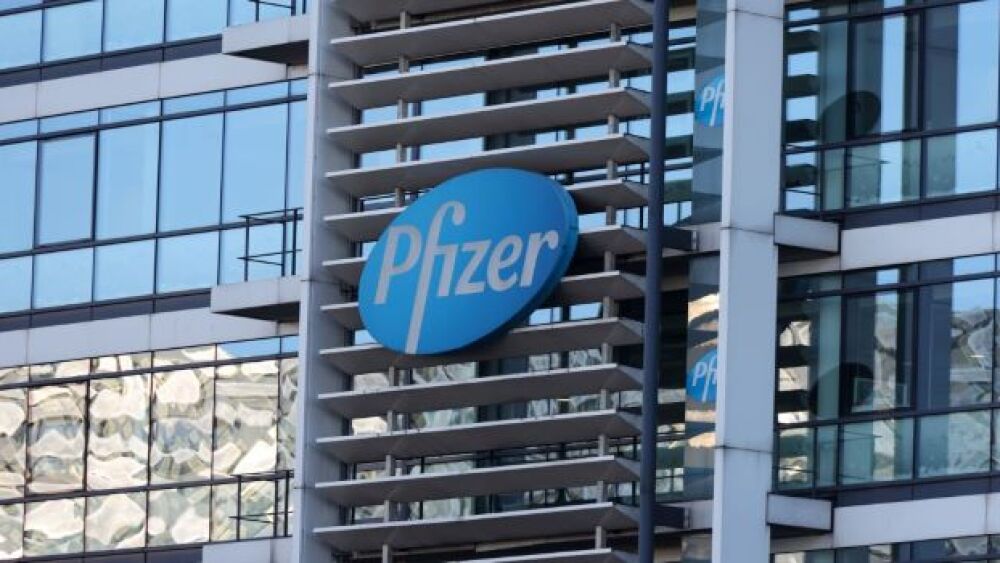Pfizer and Astellas announced positive topline Phase III results Thursday for Xtandi plus leuprolide in non-metastatic castration-sensitive prostate cancer.
Pictured: Pfizer Building with logo/courtesy Pierre Suu/Getty Images
Pfizer and Astellas hope to add another indication for their jointly marketed prostate cancer drug, Xtandi (enzalutamide), after announcing positive topline Phase III results Thursday.
Xtandi is already approved to treat three types of prostate cancer – metastatic and non-metastatic castration-resistant prostate cancer and metastatic castration-sensitive prostate cancer.
The latest data show Xtandi plus leuprolide, a gonadotropin-releasing hormone agonist significantly improved metastasis-free survival (MFS) in men with non-metastatic castration-sensitive prostate cancer (nmCSPC) over placebo plus leuprolide.
Overall survival benefits were also seen in the combo arm, but full data is not yet available. Xtandi held its ground as a monotherapy against leuprolide with statistically significant improvement in patient MFS as well.
The men enrolled in this trial had high-risk biochemical recurrence.
While slow growing, prostate cancer metastasizes in about 50% of the 1 in 8 men who are diagnosed. It’s the most common cancer in American men, after skin cancer, and the second leading cause of cancer death for men, according to the American Cancer Society.
Currently, Xtandi is the only novel hormone therapy approved for three states of prostate cancer. Pfizer and Astellas will bring data from the Phase III trial to the FDA in a supplemental submission to add the nmCSPC indication to this roster, according to Friday’s press release.
Pricing of Xtandi recently came under fire as Sen. Elizabeth Warren requested HHS exercise march-in rights for the drug in January 2023 based on the fact that the NIH gave about half a million in grants to the drug’s development. To date, no request for the U.S. government to exercise march-in rights has ever been granted.
The U.S. wholesale price per patient for the drug is about $189,000 per year, considerably higher than in Europe and other countries. However, some argue that net prices have been going down for years.
“Gross prices – what Sen. Warren (probably) is talking about – have been going up in order to get discounts into the system. Our system is messed up,” Wayne Winegarden, Ph.D., senior fellow, business and economics, Pacific Research Institute, told BioSpace in a previous interview.
Johnson & Johnson also has an oral anti-androgen drug on the market for prostate cancer. A real-world trial pitted Erleada against Xtandi. The study found a more significant early reduction in prostate-specific antigen from baseline with Erleada.
However, J&J’s drug is only approved to treat two types of prostate cancer. Reported Erleada sales for the first nine months of 2022 were $1.340 B worldwide.






